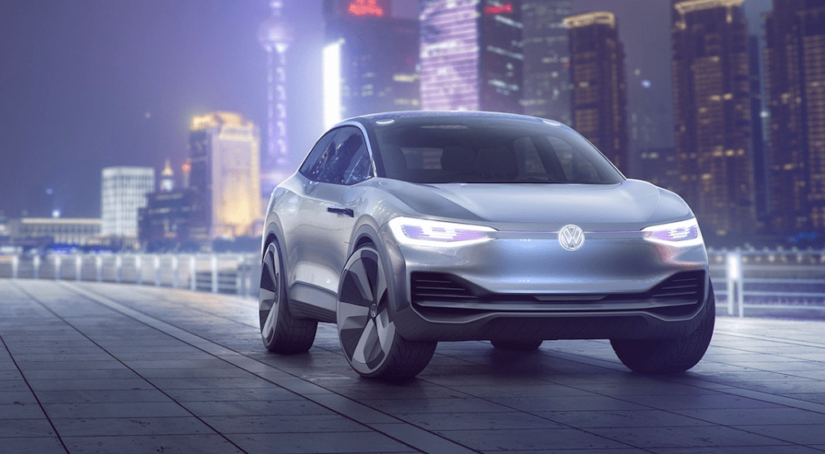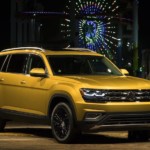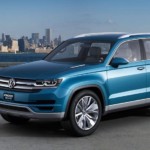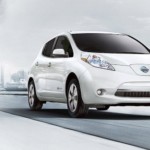In 2013, Forbes named the Volkswagen Group as one of their picks for brands that “Rule the World”. Considering that the flagship VW brand is bolstered by corporate stablemates, Audi, Bentley, Bugatti, Lamborghini and Porsche (among others) it’s hard to argue the validity of VW’s claim to such an aspirational placement.
However, fast-forward six years, and one can’t help but feel that VW has cast themselves in some bizarre interpretation of ‘The Emperor’s New Clothes’. The exposure created by Diesel-gate has certainly sullied the fine polish on the automotive powerhouse’s crown, and left it slightly off-kilter. And while the (nearly) $300 billion company might only consider the scandal to be a minor skip in their proverbial beat, it exposes a higher standard that they (and all automakers) should be beholden to.
The global automotive industry is, arguably, one of the most influential on the planet. Managing to dip its toes simultaneously in the respective pools of transportation, energy, innovation and finance (among others) automakers, and their burgeoning romance with tech giants will do more to advance change in our society than any other industry. Whether or not that change is primarily positive, remains to be seen. But the recognition of automotive influence in our lives, both at the ground and ten-thousand foot level, highlights the responsibility resting on their shoulders.
So, it’s no real surprise that VW is leaving no publicity stone unturned when it comes to their aggressive electrification strategy. To make use of a coined term, the automotive ‘rEVolution’ (get it?) which aims to transition traditional gas-powered combustion engines to Electric Vehicles is nothing new. By this point, Hybrid variants have been a growing mainstay of most lineups for the better part of a decade-and-a-half; and there has been little secret that full electrification was the ultimate endgame for most automakers. But the primary challenges for full integration came in (i) establishing the proper infrastructure for both manufacturing, and owner-fueling, as well as (ii) shifting public mindset to embrace the change. And while such struggles were universal across the industry, each automaker seems to have addressed the concerns in very individual fashions. Such individualistic competition, of course, has fueled the EV-race, making it hard at times to keep track of who’s leading the charge.
So, when the sexy upstart Tesla came on the scene, aiming to pioneer all-electric offerings, automakers lined up to jump upon the overflowing bandwagon. Initially, it made sense that brands like Toyota, who introduced the game-changing Prius hybrid, would want in. And while it shouldn’t be any surprise that VW was abroad the aforementioned bandwagon, the layperson might not have been prepared for the defining lead they would set themselves up to enjoy. The said, let’s take a closer look at VW’s strategy, and get a better understanding of why Forbes’ 2013 prediction might still hold true – even in the aftermath of such epic bad press.
The Strategy
It was September of last year when The Volkswagen Group first announced that it planned to build 27 vehicles upon its MEB electric-car architecture for release by 2022. MEB which (when translated to German) is an acronym for “modular electric toolkit” represents a paradigm shift in the company’s objectives, doubling down on their electric car strategy in a campaign they call “Electric for All”.
At the time of the announcement, Volkswagen had set aside $7 billion in support of their all-electric strategy. And across all VW brands worldwide, the automaker has somewhere around 80 models currently in development. But we’re getting ahead of ourselves, let’s dial it back to discussion of the platform.
While the MEB architecture will find its way into both VW and Audi offerings (as well as some of the European VW brands less familiar stateside) the automaker is working on unique electric architectures (like the C-BEV) that will host performance and luxury variants from both Porsche and Audi. Long-term, it’s expected that Porsche and Audi will offer an array of performance models under the Premium Platform by 2025.
Visualization of such a multi-tiered approach is impressive in itself, but it’s really only the beginning of Ford’s dedication to cover the bases.
Counting Ford In
And January 15th brought the announcement that Volkswagen was initiating their long-anticipated plan to partner with Ford, to develop commercial vans and mid-sized pickings that could be offered as early as 2022.
The terms of the partnership (which could yield other styles of vehicles, as well) remain vague in terms of public awareness, but it appears to be centered around the emergence and evolution of two distinct technologies: autonomous and electrified vehicles, respectively.
Addressing the partnership, Volkswagen CEO Herbert Diess stated, “It is no secret that our industry is undergoing fundamental change, resulting from widespread electrification, ever stricter emission regulation, digitization, the shift towards autonomous driving, and not least changing customer preferences. In such an environment, it just makes sense to share investment, pool innovation capabilities and create scale effects in clearly defined areas.”
Considering Ford’s notable foothold on the commercial van and truck industry, it would seem that VW is making a smart play, filling the gaps of segments that they may not traditionally have a place in. When you combine the scope of this plan with VW’s forward-thinking electrification strategy, it’s hard not to appreciate the vastness of possibility. At the end of the day, it would appear that VW is positioned to see the results of their R&D play a significant role outside of their signature brand, with no exclusivity in terms of a particular segment. Ambitious, for sure.
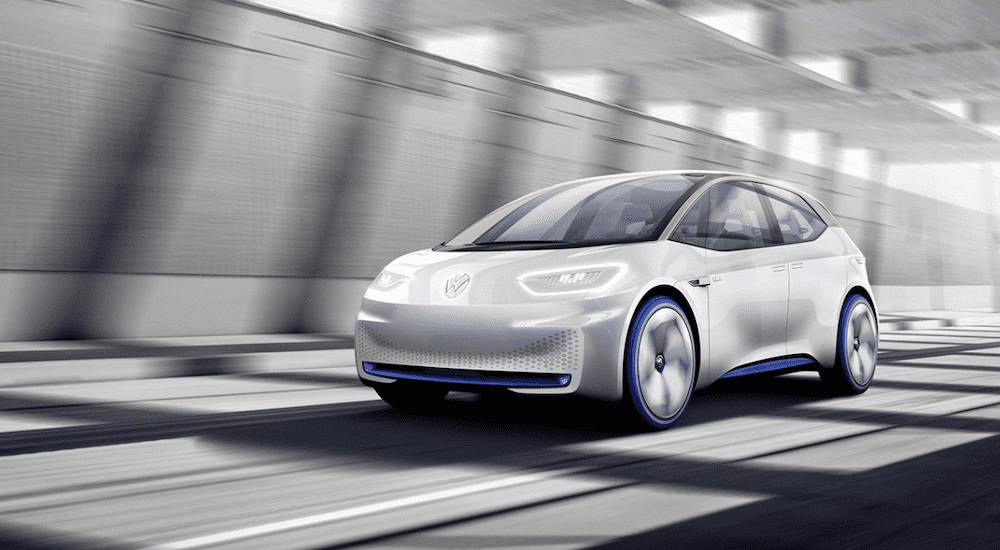
Battery
One of the major challenges faced by automakers comes from inconsistencies in the battery supply chain. Unwilling to allow such limitations to hobble their own plans, VW stands to benefit from a two-pronged attack. First, the automaker is rumored to be part of a consortium benefiting from the German government’s $1 Billion investment in domestic battery production. Second, VW has announced the formation of a west coast start-up, focusing on the refinement of battery efficiency.
Pressing Charges
But let us never forget that the timeline of VW’s stateside implementation will depend greatly on infrastructure, specifically the availability of charging stations. Currently, there are 89 of VW’s high-speed Electrify America stations nationwide. That said, the strategy being laid out by Volkswagen is to create a network of approximately 3,000 stations by mid-2019, consisting of both high and lower-speed chargers.
What Do You Think?
Does the direction of Volkswagen’s electrification initiative instill you with more, or less optimism as to the shift in automotive priorities? Does it redeem them of their emissions sins, and set them on the path for sustainable righteousness? Or is it simply the kind of competition you’d expect in an industry cash grab that will position an automaker to define the next-generation of vehicles? Regardless of your (or my) thoughts on the topic, the bottomline is that VW will inevitably continue to be one of the shaping forces of the automotive landscape for the foreseeable future. So, I guess that proves it…
Maybe Forbes was right after all…
